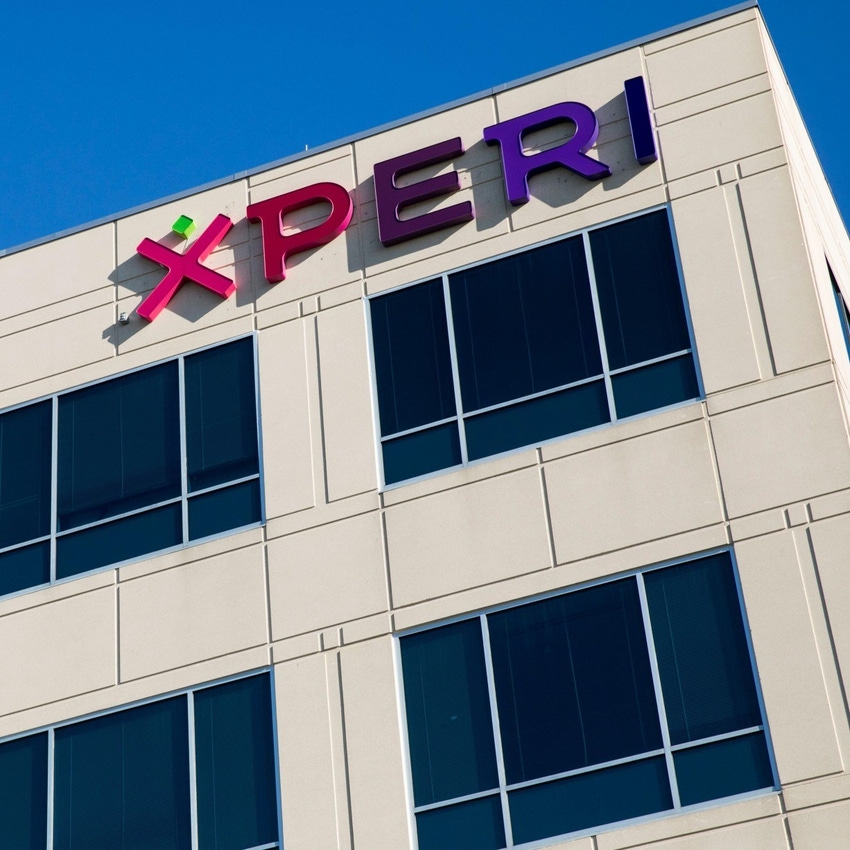Xperi set to do the splits this fall
TiVo's parent company plans to go through a long anticipated plan to separate its product business and its intellectual property and licensing business.

Xperi CEO Jon Kirchner said Wednesday the company anticipates splitting out its product and licensing businesses into two separate, publicly traded companies sometime this fall. That move would arrive more than two years after Xperi merged with TiVo.
With apologies to the late Yogi Berra, it's déjà vu all over again. TiVo explored this exact idea back in 2019, but, realizing it needed more scale, held back and instead combined with Xperi.
Figure 1:  Xperi has selected "Adeia" as the brand for its licensing business ahead of the anticipated separation of the company's intellectual property and products businesses.
Xperi has selected "Adeia" as the brand for its licensing business ahead of the anticipated separation of the company's intellectual property and products businesses.
(Source: Sundry Photography/Alamy Stock Photo)
The split will be a "transformation event for both businesses," enabling "pure play" platforms for Xperi's products and intellectual property/licensing businesses, Kirchner said on Xperi's Q4 2021 earnings call.
He said more details about top management, strategic capital allocation priorities and financial profiles, and the transaction structure will be announced later.
Meanwhile, some other decisions have already been made. Ahead of the split, Xperi has selected Adeia as the brand for the company's IP business. Adeia means "to license" in Greek, Kirchner said. [Editor's note: It's possible that the Greek word for "to sue" – surely a more relevant label for an intellectual property business known for filing reams of lawsuits – had already been taken.]
Also decided: Samir Armaly, president of IP licensing at Xperi, won't be sticking around to run that piece of the business after the split. Kirchner said Armaly is leaving the company effective March 1, and that Xperi is seeking a CEO for the licensing business that will emerge upon the separation.
According to an SEC filing detailing the separation agreement, Armaly will benefit from an accelerated vesting of 372,244 outstanding performance and time-based restricted stock units, health benefits by the company for up to a year, and an annual bonus for calendar year 2021 or $495,000.
"We came to this decision mutually with Samir as we evaluated our collective needs for a CEO candidate that can lead the IP business as a publicly traded company over the long term," Kirchner said.
Product business reshuffling
On the product side, Kirchner said development of the TiVo Stream OS for connected TVs is on track to hit the market within two years. Xperi hopes the expanded use of the OS, used today for TiVo's Stream 4K dongle, will grow and accelerate platform revenues. TiVo Stream OS will have plenty of company, as it will be competing for share in a connected TV market that's already home to Roku, Amazon (Fire TV), Google and, more recently, Comcast. TV makers Samsung, LG Electronics and Vizio have also developed their own operating systems.
Ahead of the anticipated split, Xperi has also reorganized its product business, dividing it up as follows:
Pay-TV: Classic guides, IPTV solutions, consumer subscribers, the TiVo Linux platform, CubiTV (a platform that has helped TiVo reach into markets such as Latin America, Europe, the Middle East and Asia), discovery software and consumer hardware.
Consumer Electronics: Home and mobile audio, imaging and machine language tech.
Connected Car: HD Radio, music metadata and the company's AutoStage and AutoSense technologies.
Media Platform: Stream OS, TiVo Stream 4K and viewership data.
Financial snapshot
Xperi posted Q4 2021 revenues of $214.4 million, down from $433.9 million a year ago when revenues from a new Comcast deal rolled in.
Revenues at Xperi's pay-TV unit dropped 6%, to $66.1 million. Xperi, which acquired the MobiTV assets at auction last year, expects pay-TV revenues to be flat to slightly down in 2022. However, the company does expect its IPTV business to grow (total IPTV subs grew by more than five times year-over-year) as operators such as Breezeline (formerly Atlantic Broadband) adopt the new platform.
Revenues at Xperi's Media Platform unit rose 15% to $11.7 million. Xperi expects revenues to grow double digits in 2022, driven by connected TV advertising.
Related posts:
— Jeff Baumgartner, Senior Editor, Light Reading
About the Author(s)
You May Also Like












